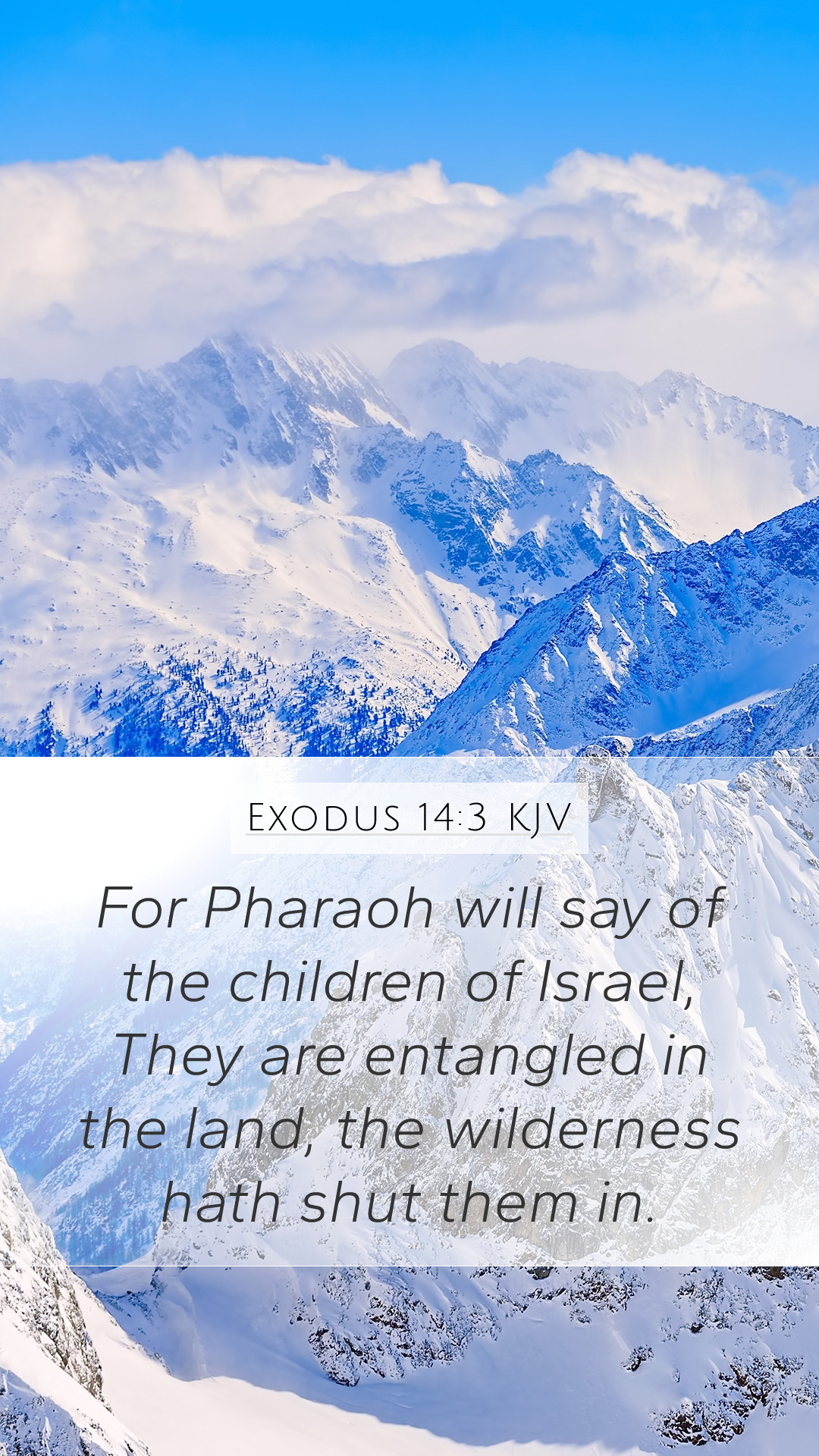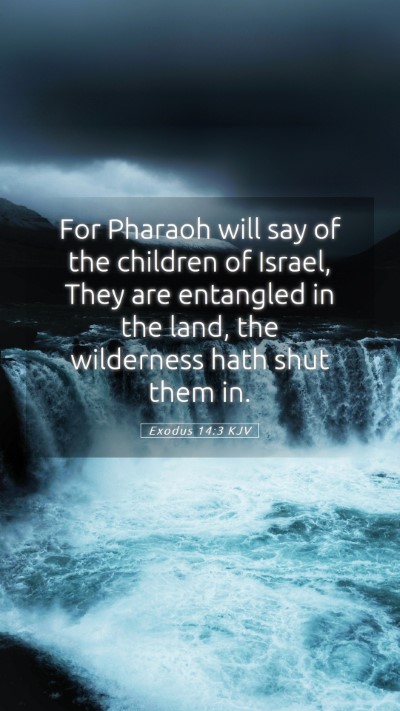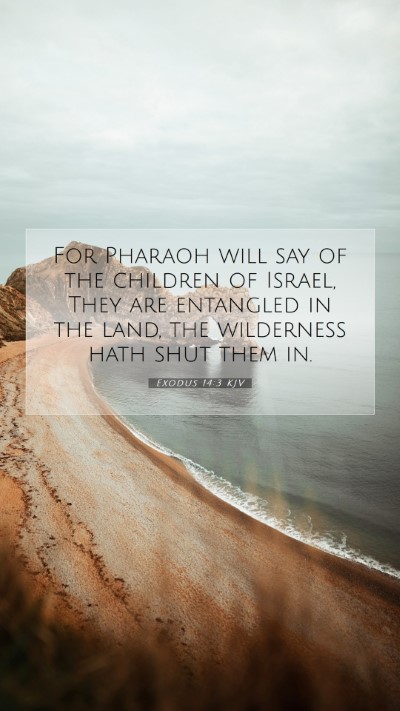Understanding Exodus 14:3
Exodus 14:3 states, "For Pharaoh will say of the children of Israel, 'They are bewildered by the land; the wilderness has closed them in.'" This verse encapsulates a significant moment in the narrative of the Israelites' exodus from Egypt. Below we explore the meaning and interpretation of this verse through insights derived from renowned public domain commentaries.
Contextual Background
The verse occurs at a pivotal moment just before the Israelites escape from Egyptian bondage. After a series of plagues, Pharaoh finally permits their exodus, but shortly thereafter, he changes his mind. The Israelites find themselves trapped between the pursuing Egyptian army and the Red Sea. The significance of this verse lies not only in its immediate context but in the broader narrative of divine rescue and faith amidst peril.
Commentary Insights
Matthew Henry's Commentary
According to Matthew Henry, this verse reflects Pharaoh's misunderstanding and misinterpretation of the situation. Pharaoh perceives the Israelites as lost and confused, unable to find their way in the wilderness. Henry emphasizes the contrast between Pharaoh's arrogance and God's sovereign guidance over His people. Despite Pharaoh's intentions, God uses this moment to demonstrate His power and deliverance.
Albert Barnes' Commentary
Albert Barnes elaborates on Pharaoh's motivations, asserting that his statement reveals his intentions to recapture the Israelites. Barnes indicates that Pharaoh believed the Israelite's disorientation would serve as an opportunity for him to exploit their vulnerability. This notion illustrates the eternal struggle between tyranny and freedom, highlighting God's intervention to lead His chosen people towards safety.
Adam Clarke's Commentary
Adam Clarke provides a deep exegesis on the phrase, “bewildered by the land.” He insightfully points out that the wilderness posed both a physical and spiritual challenge for the Israelites. Clarke stresses that their situation displayed a lack of faith, with the potential to lead them toward despair. Nevertheless, this moment serves as an opportunity for divine glory and realization of God's enduring promises.
Theological Implications
This passage elucidates various theological themes, including:
- Divine Providence: God orchestrates events for the ultimate good of His people.
- Human Misunderstanding: The contrast between divine plans and human perceptions can often lead to misguided judgments.
- Faith in Adversity: In moments of uncertainty, the importance of trusting God is paramount, despite visible obstacles.
Practical Applications
Exodus 14:3 holds relevance for modern readers in various ways:
- Bible Study Insights: Encourages individuals and groups to examine their perspectives in challenging times.
- Understanding Scripture: Promotes the importance of contextual analysis in drawing meaningful applications from difficult passages.
- Applying Bible Verses to Daily Life: Reminds believers to maintain faith and trust in God's guidance through their personal wilderness experiences.
Related Scripture Cross References
This verse connects with several other passages that illuminate its themes:
- Exodus 13:17-18: The Lord leads the Israelites along a path that protects them while ensuring their eventual deliverance.
- Psalm 77:20: This verse discusses how God led His people through the sea, a direct reference to the exodus events.
- Isaiah 43:2: A promise of God's presence and protection through trials, reinforcing the theme of divine companionship.
Conclusion
In summary, Exodus 14:3 is a profound verse that encapsulates the tensions between divine sovereignty and human perceptions. Through the commentary of respected theologians such as Matthew Henry, Albert Barnes, and Adam Clarke, readers gain valuable insights into the meanings of Bible verses and their applicability in contemporary life. As we interpret scripture, let us strive for an understanding that draws us closer to God's purpose and guidance amidst our own wilderness journeys.


